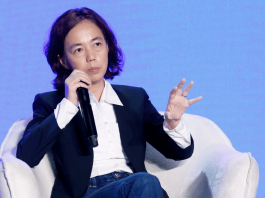California is on the brink of implementing a landmark piece of legislation that could change the landscape of artificial intelligence (AI) regulation in the United States. Known as SB 1047, the bill is designed to prevent the potential misuse of large AI models by placing stringent requirements on developers to safeguard against “critical harms” such as cyberattacks and the creation of AI-driven weapons.
As AI continues to evolve at a rapid pace, concerns about its potential misuse are growing. SB 1047 seeks to address these concerns by targeting only the most powerful AI systems—those that cost over $100 million to develop and operate on an extraordinary scale. This includes AI giants like OpenAI, Google, and Microsoft, whose models are among the most sophisticated and resource-intensive in the world.
The bill mandates that these companies must implement safety protocols, including an emergency shutdown feature, and conduct annual third-party audits to assess compliance. It also introduces the Frontier Model Division (FMD), a new agency tasked with overseeing these regulations and ensuring that AI models are safe before they are deployed.
The Pushback from Silicon Valley
Despite its well-intentioned goals, SB 1047 has sparked significant backlash from some of the most influential figures in the tech industry. Critics argue that the bill’s broad and stringent requirements could stifle innovation and place an undue burden on AI startups and open-source projects.
Venture capital giant Andreessen Horowitz (a16z) has been particularly vocal in its opposition, arguing that the bill’s thresholds are arbitrary and will hinder the growth of AI startups that are still in their nascent stages. Fei-Fei Li, a prominent AI researcher and entrepreneur, echoed these concerns, warning that SB 1047 could harm California’s burgeoning AI ecosystem.
Others, like Meta’s chief AI scientist Yann LeCun, dismiss the bill as an overreaction to an exaggerated existential threat posed by AI. They argue that the legislation is based on a fear-driven narrative, rather than a realistic assessment of AI’s risks and benefits.
Supporters of SB 1047 Stand Firm
On the other side of the debate, supporters of SB 1047, including its author, California State Senator Scott Wiener, believe that the bill is a necessary step to prevent future disasters. They point to past regulatory failures with social media and data privacy as examples of what can happen when technology outpaces regulation.
Notably, Geoffrey Hinton and Yoshua Bengio, two of the “godfathers of AI,” have endorsed the bill. They and other proponents argue that by setting a precedent for responsible AI development, SB 1047 could help prevent the kind of catastrophic events that could arise from unchecked AI advancement.
What’s Next for SB 1047?
SB 1047 is scheduled for a final vote in the California Senate later this month. If passed, it will then head to Governor Gavin Newsom’s desk for approval. Even if signed into law, the bill would not take effect until 2026, allowing time for the FMD to be established and for the regulations to be fully developed.
However, the battle over SB 1047 is far from over. With powerful opponents in Silicon Valley and potential legal challenges looming, the fate of this controversial bill is still uncertain. What is clear, though, is that the debate over SB 1047 has ignited a broader conversation about the future of AI regulation—a conversation that will likely shape the trajectory of the tech industry for years to come.


